Tadashi Imai
Nacimiento : 1912-01-08, Tokyo, Tokyo, Japan
Muerte : 1991-11-22
Historia
Tadashi Imai (今井 正 Imai Tadashi, January 8, 1912 - November 22, 1991) was a Japanese film director known for social realist filmmaking informed by a left-wing perspective.
Description above from the Wikipedia article Tadashi Imai , licensed under CC-BY-SA, full list of contributors on Wikipedia
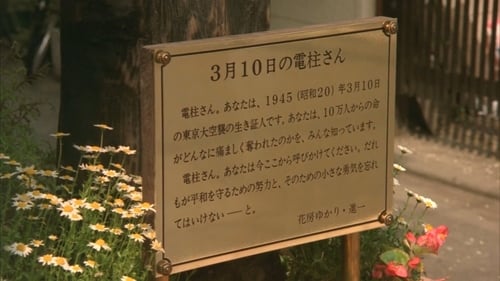
Director
An auto repairman's daughter questions him about what happened to her aunt during the war, but the father remains reticent. Finally the man opens up, and the girl is able to piece together her aunt's tragic story.

Director
A remake of the 1953 film of the same name.
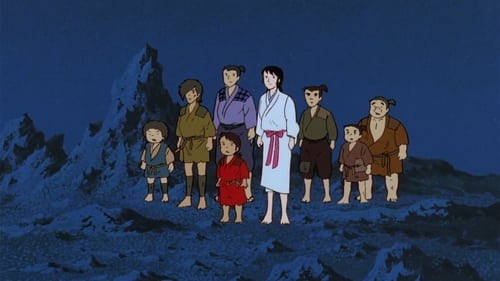
Director
Up in Heaven, Yuki’s grandparents decide that, having turned thirteen years old, she must go down to Earth to a village that is torn by bandits and intervene to save its people. However if she does not succeed within one year she will become as insubstantial as the wind. Down in the village, Yuki is befriended by a group of orphans whose parents have all been killed by the bandits and who now subsist by begging. Yuki amazes them by taming the wild horse Blizzard. She is instrumental in getting the orphans and farmers to stand up to first the warring bandits and then Goemon, the greedy lord that owns the region. But Yuki must face her greatest challenge yet when the displeased Demon God that lives in the volcano emerges to destroy those who live beneath.

Director
Older brother younger sister.

Director
Horror film based on the story by Ryunosuke Akutagawa.

Director
Japanese youngsters enduring hard training in Recruit Camp and then going to Iwo Jima in the last days of World War II.

Director
A man who survived the war carries the will of his comrades in arms, walking across the country visiting the bereaved families.

Director
Set at the end of the feudal period. A woman spends most of her early life in prison, incarcerated by political opponents of her father. When she is released at the age of 44, the power struggles of her clan continue to disturb her life and the man whom she loves.

Screenplay
Second part to "River Without a Bridge" (1969)

Director
Second part to "River Without a Bridge" (1969)

Director

Director
"The Time of Reckoning" transforms a screwball-comedy plot into a sober study of a successful businessman with serious relationship problems involving three women: his wife of ten years who announces she is pregnant by another man; a mistress who wants to have a baby with him; and an ex-lover who claims he fathered her son.

Director
Japanese film directed by Tadashi Imai.

Director
This tragic drama shows a young man fettered by Bushido, the way of the Samurai, who tried to escape the chains of his position, but was being forced to die. When the Tokugawa Shogunate ruled the land, Tatsuno castle in Wakisaka Clan's home of Harima held an established custom, the inspection of the arms warehouse. The Government Inspector Okuno Magodayu found a slight bit of dirt on the point of a spear and mentioned it with disdain. Ezaki Shinpachi heard it and started an argument with him. Magodayu then sent a a letter of challenge to him because he felt insulted by a low-ranking underling without a title. As it turned out Magodayu was killed. Since then, Shinpachi and the Okuno family have had continuous revenge duels. The tension mounts as this story builds to an extremely violent climax, when blood must pay for blood if the clan is to survive!
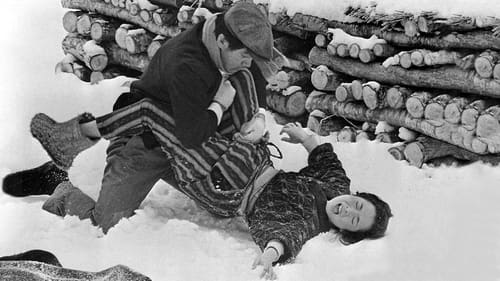
Director
A sake factory worker on holiday returns to his home town, where he rapes the wife of one of his co-workers in the forest. The other man returns home to find his wife changed and suspects that she has been unfaithful.
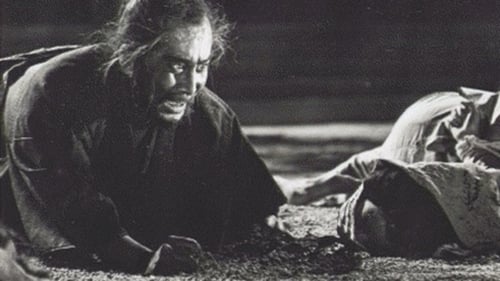
Director
After a salary-man's fiancée attempts suicide, he recounts his gruesome family history which saw generations of his ancestors suffer and sacrifice themselves for the sake of their cruel lords.

Director
Two obaachans become fast friends listening to music in front of a record store. They both boast about their loving sons but in reality, one had just escaped a retirement home and the other was looking for an escape from her son and daughter-in-law. With nowhere to go, the two wander around, befriending a cosmetics salesman and a kind waitress who give them beer. This biting social satire starring two memorable grandmothers, scripted by Yôko Mizuki, picked up on Japan’s aging population problem far ahead of its time.

Director

Director
Kiku and her brother Isamu are social outcasts, children of a prostitute mother and black GI father, in postwar Japan.

Director
Following a yearlong attendance upon his shogun in Edo, samurai Hikokuro makes a long-awaited return to his home and doting wife, Dane. Initially greeted by the effusive welcome of his family, spiteful whispers also reach his ear about an adulterous affair carried on, in his long absence, between his wife and a famous drummer. With Hikokuro’s honor imperiled by rumor, his family insists on a formal investigation into the veracity of the gossip. Through the combined testimony of many witnesses, a tale unwinds around the visits of a traveling musician hired to tutor the family heir, the spurned attentions of the man who started the rumor, and the ultimate truth behind the accusations. The conclusion of events prove as much an indictment of bushidō as it is of the reluctant parties involved. Adapted from a 1706 play by Chikamatsu Monzaemon and based on a true case.

Director
Junai Monogatari AKA Story of Pure Love is about two poor youths, Mitsuko and Kando, rebelling against society in various ways, who are desperately trying to be together despite tortuous circumstances. The film depicts their lives as thieves, menial laborers who can get little pay, society outcasts, and of course, lovers. Junai Monogatari depicts, mostly, their struggles within the Japanese reformatory system and Mitsuko's worsening sickness.

Director
A touching story depicting the harsh lives of farmers in Kasumigaura. An attempt to start a fishery business to revive an ailing farming community creates friction amongst the proud residents.
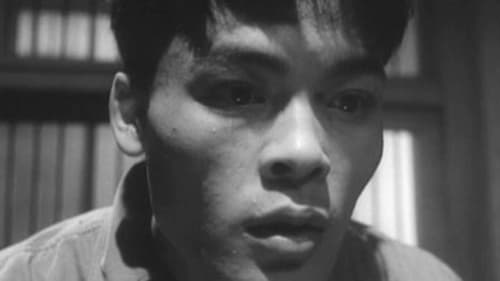
Director
Police beat a murder confession out of four innocent men who are then sentenced to death. Based on a true story.
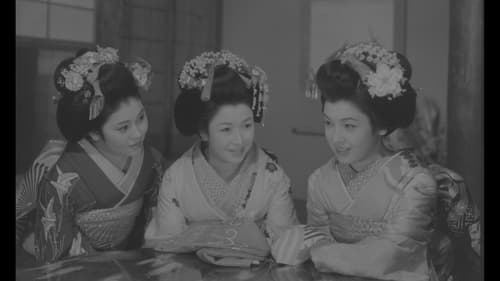
Director

Director

Director
The story of a group of young people who organise their own travelling symphony orchestra to provide music for people living in remote villages shortly after the war.

Director
Three short tales from stories by Ichiyo Higuchi. In one, a young woman is degraded by her family after an arranged marriage. Another deals with the troubles heaped upon a young servant by her family and the wealthy people who employ her. The final story tells of a prostitute and her hopes of finding a new, respectable life.

Director
A group of Okinawan high school girls are drafted as nurses during the American invasion of the island. As the enemy army advances further, the situation for the girls becomes increasingly desperate as food and shelter run out and the number of injured climbs, leading to the film's tragic finale.

Director
A story of a passionate teacher and his great effort for the children in a poor village.
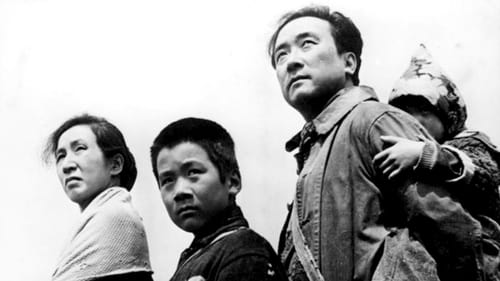
Director
About the struggles of day labourers to achieve dignity and a standard of living above the starvation level. Utilising the Zenshinza theatrical troupe.

Director
Saburo and Keiko fall in love with each other but the tide of war separates them.

Screenplay
Continuation of The Blue Mountains: Part I. Released a week later.

Director
Continuation of The Blue Mountains: Part I. Released a week later.

Screenplay
Teacher Yukiko finds herself in opposition to conservative faculty and villagers after defending a student for being in a relationship with a young man from Tokyo.

Director
Teacher Yukiko finds herself in opposition to conservative faculty and villagers after defending a student for being in a relationship with a young man from Tokyo.
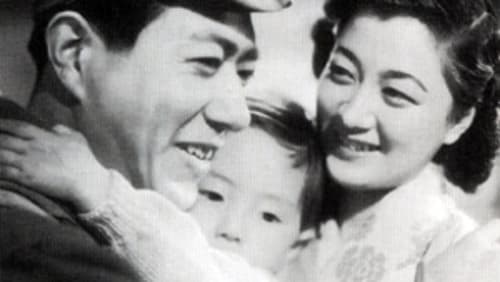
Director

Director
1947 Toho film directed by Tadashi Imai

Director
After learning that he has accidentally killed a man in a fight, Unokichi must look after the man's pregnant widow.

Director
Tadashi Imai 1946 movie

Director
After facing hard times, an orphan Korean boy gets adopted to Japanese society. He meets several Japanese people who are kind to him, and grows up wanting to repay his debt to Japan, by becoming a kamikaze pilot.

Director
It is 1921 and a town has a newspaper which prints urgent bulletins as required. The Washington-based CITES treaty, in which Japan participates, puts a limit on the number of warships any country can possess. As a result, Japan has to decommission a ship to its makers' disappointment. An institute of technology's laboratory designs a new ship. Due to less ships, sailors have to retire and are also disappointed. The laboratory's manager and an admiral are visiting a patient at a hospital and meet coincidentally. The former has a daughter who worries about her father's workload. She asks him to accompany her to a concert. Father has little time, but is convinced for her sake. He is inspired for a ship's design at the performance. The film is inspired by the life of Jo Hiraga.

Director
Stalwart soldiers of the Japanese Empire – Japanese and Korean alike – stand in defense of a military outpost threatened by "bandits."

Director
Japanese war movie










